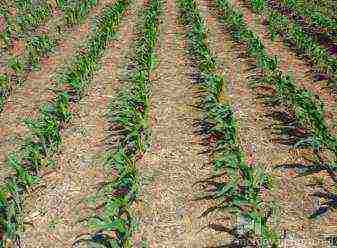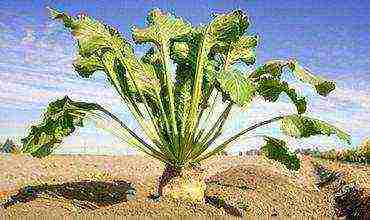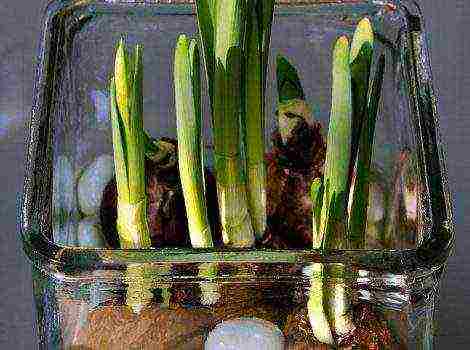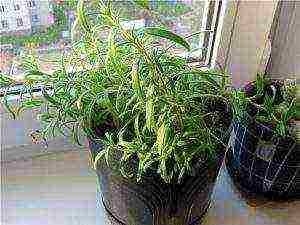Chisinau, August 7, - AiF. MD -
Moldovan farmers will harvest a record low sugar beet harvest this year, and sugar production may become problematic.
Even root crops suffer from drought. So, according to experts' forecasts, farmers will collect about 220-250 centners of beets per hectare this year. According to beet growers, this figure is the lowest in the last decade. On average, for the reporting period, the yield was 310 centners of root crops per hectare.
Sugar beets are grown mainly in the north of our republic.
Why sugar?
The price of Moldovan sugar has remained practically unchanged over the past five years - depending on the season, the cost of 1 kg of sugar for wholesale buyers ranges from 8.5 to 12.5 lei, and retail, taking into account the trade margin, from 11 to 16 lei. Sugar producers cannot sell sugar at the price they want - the Moldovan sugar market is connected with the markets of neighboring countries, where prices fluctuate noticeably and cause seasonal changes in sugar prices in Moldova. Then why is the Council so interested in sugar when prices for all other food, fuel, and many other commodities have risen steadily and never declined in recent years?
How much does sugar cost to neighbors?
Almost the same as in Moldova, with a difference of 5-10%. It is unfair to compare sugar prices in Moldovan supermarkets with wholesale prices in neighboring countries. If we correctly compare the average wholesale prices for May, referred to by the council, then in Romania they amounted to 12.15 lei per 1 kg, in Ukraine - about 11.1 lei per kg, in Russia - 12.6 lei, in Kazakhstan - 13 , 5 lei per 1 kg. During the same period in Moldova, the average wholesale prices amounted to 11.25 lei per 1 kg! Moldovan sugar is actively exported to these and other countries of the EU and the Customs Union, which not only speaks of its high quality, but also proves that the price of Moldovan sugar is not higher than in regional markets.
Why does Moldova need sugar?
All countries of the world and especially the countries of the EU and the Customs Union strive to produce sugar on their own. And this is natural - every civilized country itself is trying to efficiently produce everything that it can - these are jobs, and salaries, and taxes, and the state budget. Over the past 10 years, more than 80 million euros have been invested in the sugar beet industry. The total annual turnover of the industry exceeds 1.5 billion lei, which gives hundreds of millions of lei in taxes to the budget and has a positive effect on the growth of Moldova's GDP. The volume of sales of Moldovan sugar abroad is also growing, where about 30 thousand tons of this product are exported annually. Moldova today has an efficient sugar beet industry that successfully competes in the markets of Europe and the Customs Union.
Why should farmers produce sugar beets?
Sugar beet is the locomotive of agriculture in the north of Moldova. The price for beets in 2013 was not 560 lei, as it was written in the council's article, but almost 700 per 1 ton and was one of the highest prices for sugar beets in the region. Over ten years, despite not always favorable weather conditions, the average yield of this crop has doubled - from 20 tons / ha to 40 tons / ha. Thanks to the help of sugar producers, farmers buy the most modern equipment and master new moisture-saving technologies, which is extremely important for the arid climate of Moldova.
What does market liberalization mean?
The initiators of the liberalization of the sugar market complain that they cannot purchase sugar on foreign markets according to quotas provided for by the agreement with the WTO for Moldova (6.5 thousand tons) and additional licenses allocated by the Ministry of Economy in the event of a deficit. But everyone can import this sugar according to the fair WTO principle “first come - first served”.Moreover, according to WTO quotas - no more than 550 tons at a time, and according to licenses - no more than 10% of the total volume of the license. For example, last year, when Moldova had to import 30 thousand tons of sugar from the Customs Union to cover the sugar deficit and to avoid a jump in prices, this sugar was gradually declared and imported by various commercial companies for four months! Nobody prevented the initiators of the so-called liberalization from buying and importing sugar. However, they seem to have different goals.
10 years ago, Moldova protected its market from cane sugar, and the revival of its own sugar beet production began. Most cane sugar is produced in South America, where rainforests are being ruthlessly cut down and land is depleted, generating 2-3 sugarcane crops a year. Europe and the countries of the Customs Union have reliably protected their production with high duties (in the EU - over 400 euros per 1 ton!) From this often dumped sugar. Beet sugar cannot compete with cane sugar, which is produced at the expense of cheap labor and the destruction of natural resources. However, the initiators of liberal reforms in the sugar market of Moldova are not interested in Moldova having its own sugar beet complex. Their real goal is to profit from the cane sugar trade. But if cane sugar gets to Moldova, it will mean the inevitable death of the beet sugar industry in Moldova and the closure of both the EU markets and the Customs Union for Moldovan sugar. We already went through this in 2002, when, due to the import of 80 thousand tons of cane sugar, Moldova found itself in complete isolation from the sugar markets of all neighboring countries. What is better for the country - the Moldovan authorities unambiguously decided 10 years ago, and 5 years ago their decision was finally and irrevocably agreed with the WTO.
What the Competition Council wants and why it is trying to manipulate public opinion will become evident in the near future.
The sugar market in Moldova is highly competitive. Three companies operate on it: Sudzucker Moldova (factories in Drochia and Falesti, share of the total production capacity of the industry - 39%), Magt-Vest (factories in Glodeni and Donduseni, 32%) and Moldova-Zahar ( plant in Cupcini, 29%). The production results are different for everyone, the best for those who invest in factories and agricultural partners. The market leader "Sudzucker Moldova" has been operating in Moldova since 1998.
More than 70 modern beet harvesters are in service with Moldovan farmers. The cost of each is 400 thousand euros.

August 7 / MOLDOVAinform /. Root crops suffered from abnormal warming and lack of precipitation in Moldova. This was reported by Publika.md.
Moldovan experts in the field of agriculture said that this year, due to the drought, the agrarians will be able to harvest only 220-250 centners of sweet beets from one hectare.
Moldovan farmers have already noted that the harvest of sweet beets in 2015 will be the lowest in the last ten years.
In previous years, the yield of sweet beets averaged 310 centners of root crops per hectare. Note that sugar beets are usually grown in the north of Moldova.
MOLDOVAinform
 The sugar beet harvest in the north of the country could be cut by almost half.
The sugar beet harvest in the north of the country could be cut by almost half.
The sugar beet harvest in the north of the country could be cut by almost half. Farmers say the drought is taking its toll on this crop.
According to forecasts of experts of the Ministry of Agriculture, about 32 tons of sugar beets will be harvested per hectare this year. Harvesting will begin in a few weeks.
A rainy spring delighted farmers in the north of the country. They hoped to harvest about 60-70 tons of sugar beets per hectare. However, the summer drought ruined their plans. Igor Popovski, an agronomist from the Floresti region, says the harvest will be much less, around 30 tons per hectare. And this means that even the costs will not pay off. We spent almost 25 thousand lei per hectare.
“Almost everything was dry in two weeks.If in the first half of June the indicators were still good, then the heat of the last two weeks killed everything. This beet weighs about 300 grams. And it should weigh about 800, ”said agronomist Igor Popovski.
A farmer from the village of Gindesht in the same region expects to collect about 50 tons per hectare, just because he used mineral fertilizers and modern technologies. But this is not enough. Initially, he hoped to collect 70 tons per hectare.
“We used new technologies, we had to spend more than usual. But there is hope that we will return the money invested, ”said the director of the agricultural enterprise Andrei Byrca.
According to experts, the sugar beet yield depends on many factors.
“July turned out to be dry and there was a large deficit of precipitation, especially in the areas where sugar beet is cultivated. The cultivation of sugar beet still depends on the cultivation technology, ”says Tatyana Mironova, head of the Center for Agrometeorological Monitoring.
According to the Union of Sugar Producers, the factories will buy sugar beets at an average rate of 600 lei per ton, the same as in 2015. This year, sugar beets were planted on about 23 thousand hectares of farmland.


